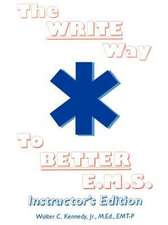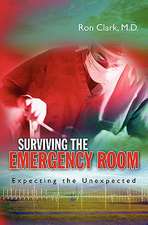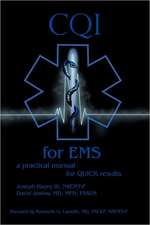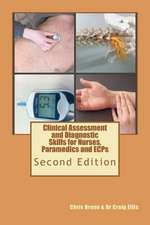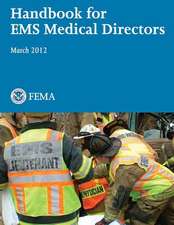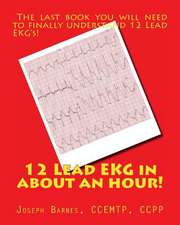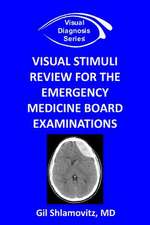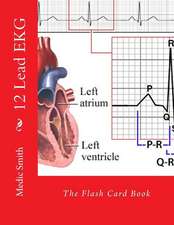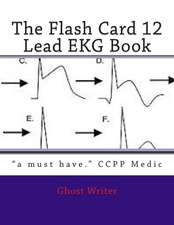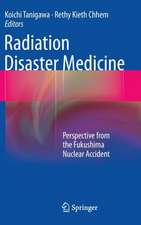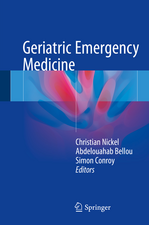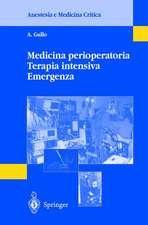Essentials of Shock Management: A Scenario-Based Approach
Editat de Gil Joon Suhen Limba Engleză Hardback – 13 dec 2018
Preț: 728.49 lei
Preț vechi: 766.84 lei
-5% Nou
Puncte Express: 1093
Preț estimativ în valută:
139.44€ • 151.51$ • 117.21£
139.44€ • 151.51$ • 117.21£
Carte tipărită la comandă
Livrare economică 16-22 aprilie
Preluare comenzi: 021 569.72.76
Specificații
ISBN-13: 9789811054051
ISBN-10: 9811054053
Pagini: 111
Ilustrații: IX, 147 p. 73 illus., 45 illus. in color.
Dimensiuni: 178 x 254 x 9 mm
Greutate: 0.66 kg
Ediția:1st ed. 2018
Editura: Springer Nature Singapore
Colecția Springer
Locul publicării:Singapore, Singapore
ISBN-10: 9811054053
Pagini: 111
Ilustrații: IX, 147 p. 73 illus., 45 illus. in color.
Dimensiuni: 178 x 254 x 9 mm
Greutate: 0.66 kg
Ediția:1st ed. 2018
Editura: Springer Nature Singapore
Colecția Springer
Locul publicării:Singapore, Singapore
Cuprins
1. Shock.- A. Introduction.- B.- Classification.- C. General approach to shock.- 2. Type of Shock.- A. Septic Shock.- i. Introduction.- ii. Pathophysiology.- iii. Initial approach/Diagnosis.- iv. Management.- B.Hemorrhagic shock.- i.Introduction.- ii. Pathophysiology.- iii. Initial approach/Diagnosis.- iv. Management.- v. Future.- C. Cardiogenic shock.- D. Anaphylactic shock.- E. Obstructive shock.- 3. Scenario based approach.- A. Sepsis 4 cases(diagnosis, fluid, vasopressor, steroid).- B. HS 3 cases (trauma, GI bleeding, REBOA case).- C. Cardiogenic shock 2 cases (simple, IABP, ECMO).- D. obstructive shock 2 case.
Recenzii
“This book is a good … introduction to shock for a medical student or early resident trainee. The vignettes are a particularly useful contribution to the existing literature to facilitate teaching and could be easily integrated into problem-based learning curricula for trainees.” (Dorothee A. Mueller, Anesthesia & Analgesia, Vol. 129 (1), July, 2019)
Notă biografică
Gil Joon Suh, M.D., Ph.D. Department of Emergency Medicine, Seoul National University Hospital, Seoul, South Korea.
Textul de pe ultima copertă
This book is designed to offer the reader first-rate guidance on shock management in the real world. Comprehensive, evidence-based, and up-to-date instruction is provided on optimal care of patients with different types of shock – septic, hemorrhagic, cardiogenic, anaphylactic, and obstructive – at all stages from initial response through to ICU admission. As well as management, the coverage encompasses pathophysiology, clinical presentation, diagnosis, and emerging trends. A further key feature is the use of a scenario-based approach to present a series of cases based on real-life experiences. Here, a narrative style and Q&A form are employed to vividly convey scenarios that may be encountered in clinical practice and to elucidate decision making in complex circumstances. When readers experience difficulty in answering the questions, the earlier sections can be consulted to identify the correct response. This book will be of great value for all health care professionals. In particular, it will be very helpful for novice or inexperienced practitioners in emergency medicine, critical care medicine, and traumatology.
Caracteristici
Offers up-to-date guidance on management of the various types of shock Covers all stages from initial response to ICU admission Features a scenario-based approach that draws on real-life cases to capture the reader’s interest

